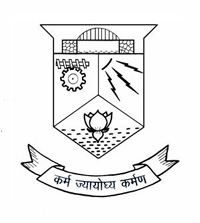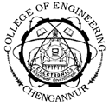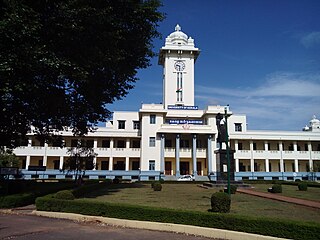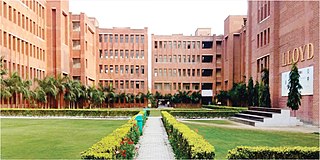A Bachelor of Laws is an undergraduate law degree offered in most common law countries as the primary law degree and serves as the first professional qualification for legal practitioners. This degree requires the study of core legal subjects and jurisprudence to provide a comprehensive understanding of the legal system and its function. The LLB curriculum is designed to impart a thorough knowledge of legal principles, legal research skills, and a sound understanding of the roles and responsibilities of lawyers within society. This degree is often a prerequisite for taking bar exams or qualifying as a practising lawyer, depending on the jurisdiction. Additionally, the LLB program also serves as a foundation for further legal education, such as a Master of Laws (LLM) or other postgraduate studies in law.

NSS College of Engineering, Palakkad is the fourth engineering educational institution established in Kerala, India. It was founded in 1960 by Nair Service Society. The college is affiliated to the APJ Abdul Kalam Technological University since its inception in 2015.

The West Bengal National University of Juridical Sciences is a National Law University (NLU) located in Bidhannagar, Kolkata, West Bengal, India. In 2023, it was ranked 4th among law colleges in India by National Institutional Ranking Framework and 2nd by India Today. It comes under the exclusive chancellorship and purview of the Chief Justice of India.

The College of Engineering, Thiruvananthapuram, commonly shortened to CET, is an engineering college in the Indian state of Kerala, situated in Thiruvananthapuram. Founded in 1939 by the Travancore monarch Chithira Thirunal, it is the state's oldest technical institution. It currently offers undergraduate, graduate and research programs in eight branches of engineering and has been affiliated to the APJ Abdul Kalam Technological University since 2015, prior to which it was part of the University of Kerala.

The Thangal Kunju Musaliar College of Engineering, commonly known as TKMCE, is the first government-aided engineering institution in the Indian state of Kerala, with foundation stone laid on 2nd February 1956, and inaugurated on 3 July 1958. The campus is located in Karicode, approximately 6 kilometres (3.7 mi) away from Kollam, Kerala, India. The college was affiliated to Kerala University before getting changed to APJ Abdul Kalam Technological University when it was formed in 2015. UGC conferred autonomous status to the institution in 2022.

The College of Engineering Chengannur commonly known as CEC, is an engineering institute in the state of Kerala, India, that was established by the Government of Kerala under the aegis of the Institute of Human Resources Development (IHRD) in 1993. The college is located in Chengannur, Alappuzha. The college is affiliated to the APJ Abdul Kalam Technological University and the courses are recognised by AICTE and accredited by NBA, the National Board of Accreditation, India.

The importance and antiquity of education in Kerala are underscored by the state's ranking as among the most literate in the country. The educational transformation of Kerala was triggered by the efforts of both Church Mission Society missionaries like Jon Munro and clergy of Catholic church like Fr Kuriakose Elias Chavara and Fr Charles Lavigne and were the pioneers that promoted mass education in Kerala, in the early decades of the 19th century. The local dynastic precursors of modern-day Kerala, primarily the Travancore Royal Family, the Nair Service Society, Sree Narayana Dharma Paripalana Yogam, and Muslim Educational Society (MES), also made significant contributions to the progress on education in Kerala. Local schools were known by the general term kalaris, some of which taught martial arts, but other village schools run by Ezhuthachans were for imparting general education. Christian missionaries and British rule brought the modern school education system to Kerala. Ezhuthu palli was the name used in earlier times. The word was derived from the schools run by the Buddhist monasteries. For centuries, villages used to set up an ezhuthupally or ashan pallikoodam with one or two teachers. Students used to go this school from nearby areas and learn languages, literature, mathematics, grammar etc. After completing this, students may continue study about specific subjects such as ayurveda, astrology, accounting etc. Censuses during the 1800s showed that Travancore, Cochin, and Kannur areas have many such schools.

The Government Law College, Kozhikode or Kozhikode Law College situated on the outskirts of Kozhikode, India, is owned by the Government of Kerala and affiliated to the University of Calicut. The college caters to the needs of the north Malabar region of Kerala. Students are selected through a state level entrance test. The college offers LL.B and LL.M courses.
Government Engineering College, Wayanad is an engineering college established and managed by the Government of Kerala, India. It is affiliated to the APJ Abdul Kalam Technological University, and is approved by the All India Council for Technical Education (AICTE), New Delhi.[1]

Government Law College, Thiruvananthapuram is an institution for legal education at graduate and post-graduate levels in Kerala, India. Established by the then Maharaja of Travancore in 1875, it is one of the oldest law colleges in India. Affiliated to the Faculty of Law of University of Kerala and the Bar Council of India, the college is supervised and controlled by the Government of Kerala.
Legal education in India generally refers to the education of lawyers before entry into practice. Legal education in India is offered at different levels by the traditional universities and the specialised law universities and schools only after completion of an undergraduate degree or as an integrated degree.

The Government College of Engineering Karunagappally (CEK) is a public institute of engineering and technology in Karunagappally, in the north-west of Kollam district, Kerala, India. Established in 1999 by the Government of Kerala, it is the second engineering college in Kollam district the fourth engineering college under the aegis of the state government's Institute of Human Resources Development in Electronics. The institute is affiliated to the A P J Abdul Kalam Technological University, Recognized by AICTE and Accredited by National Board of Accreditation(NBA). It is the second engineering College in the Kerala Section to win the prestigious IEEE Region 10(Asia - Pacific) Exemplary Student Branch Award, First and Only student branch in Asia Pacific Region to win the IEEE MGA Regional Exemplary Student Branch Award five times in a row.

The Government Law College, Ernakulam, also known as His Highness the Maharajas Government Law College, Ernakulam is an prestigious institution for undergraduate and post-graduate legal education in Kochi, Kerala, India. Founded in 1874, it is the first law college in the state of Kerala and one of the oldest law colleges in India.

Lloyd Law College is a private law school in India located in Noida, Uttar Pradesh offering legal education since year 2003 in affiliation with CCS University, Meerut, U.P, and approved by the Bar Council of India.

Punthalathazham is a landlocked neighbourhood of the city of Kollam in the Indian state of Kerala. It is located around six kilometres east of the core Kollam (Quilon) city towards Kannanalloor . This place has a little geographical importance and serves as the tail boundary of Kollam Municipal Corporation. Inhabitants belong to working and middle classes.
Sree Narayana Polytechnic College (Malayalam: ശ്രീ നാരായണ പോളിടെക് നിക്ക് is located in Kottiyam near Kollam, Kerala in southern India. It is named after the Saint and social reformer "Sree Narayana Guru". SNPTC was founded in 1957, by the Sree Narayana Trusts, Kollam under the initiative of the secretary, the late Sri.R.Sankar, former chief minister of Kerala. In the period 2006–07, the college celebrated its Golden Jubilee.

Army Institute of Law (AIL) is a private law school in Mohali, Punjab, India. The institute is affiliated to Punjabi University, Patiala, and is run by the Army Welfare Education Society (AWES). The institute has a moderately sized campus in Sector 68, Mohali. The hostels can house 400 students.

The Bishop Jerome Institute or BJI or BJGI is an institution situated in Kollam city of Kerala, India. It is one among the AICTE approved engineering and management colleges situated inside the city limit of Kollam.
Kollam district, earlier called Quilon district, is one of the 14 districts of Kerala state, India. The district is representative of all the natural attributes of Kerala states, and is endowed with a long coastal region, a major sea port on the Arabian Sea, plains and the mountains, lakes, lagoons and Kerala Backwaters, forests and the farm land, and rivers and streams. The area had mercantile relationship with Phoenicians and the Romans.














